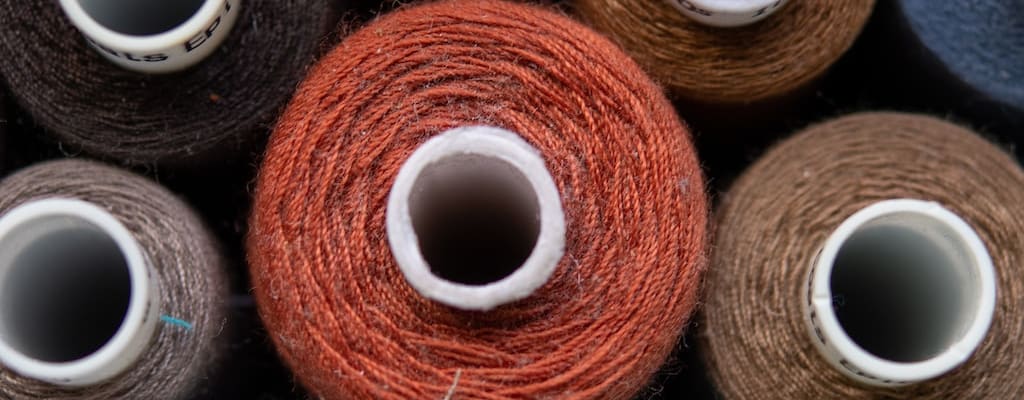dyed-in-the-wool: Idiom Meaning and Origin
What does ‘dyed-in-the-wool’ mean?
The idiom "dyed-in-the-wool" means firmly and completely holding a particular belief or opinion. It refers to something that is deeply ingrained and unlikely to change.

Idiom Explorer
The idiom "in too deep" means being heavily involved or committed to a situation or problem to an extent that it becomes difficult or impossible to escape or resolve it.
The idiom "in the tank" means being strongly biased or supportive of someone or something, often to the point of being blindly loyal or uncritical.
The idiom "hold yew hard" means to exert maximum effort, strength, or determination in a situation. It conveys the idea of holding on tightly to something, whether it be a physical object or a difficult task.
The idiom *hold firm* means to remain determined and steadfast in one's position or belief, especially in the face of opposition or difficulties.
The idiom "hold fast" means to firmly grasp or cling to something or someone, both literally and metaphorically, symbolizing determination, strength, and loyalty.
The idiom "hill to die on" refers to a strongly held belief or principle that a person is unwilling to compromise on, even if it means facing serious consequences or opposition.
The idiom "here to stay" means that something or someone has become permanent and is not going away or disappearing anytime soon.
The idiom "have one's heart in" means to be passionately or deeply committed or invested in something or someone.
The idiom "hard-and-fast" means having strict and inflexible rules or principles that must be followed without exception.
Origins Unveiled
The idiom "dyed-in-the-wool" is a well-known phrase used to describe someone or something deeply ingrained or firmly established in a particular belief, attitude, or characteristic. This idiom emphasizes the unchanging and unwavering nature of a person's traits or qualities. The phrase originated from the process of dyeing wool, which involves immersing the fibers in a dye solution to achieve a permanent and deep color. "Dyed-in-the-wool" has its roots in the 17th century and has since become a widely used expression in the English language.
The phrase "dyed-in-the-wool" can be traced back to the process of dyeing wool, practiced for centuries. When wool is dyed, the fibers are completely saturated with the dye solution, resulting in a deep and permanent color. This process ensures that the color is ingrained within the wool fibers themselves, making it impossible to remove or change. This characteristic of dyeing wool became a metaphor for qualities or characteristics deeply ingrained and difficult to alter. Over time, this metaphor evolved into the idiom "dyed-in-the-wool," still widely used today.
The idiom "dyed-in-the-wool" is typically used to describe people who possess deeply rooted and resistant to change traits, beliefs, or characteristics. It is often applied to individuals who hold strong and unwavering opinions, beliefs, or allegiances. For example, one might say that a political activist is a "dyed-in-the-wool" supporter of a particular party, indicating their steadfast and unwavering commitment and loyalty.
Furthermore, the idiom "dyed-in-the-wool" can also be used to describe objects or things characterized by their unwavering nature or quality. For instance, one might describe a sports car enthusiast as a "dyed-in-the-wool" fan, signifying their deep and unchanging passion for sports cars. Similarly, a company might be referred to as a "dyed-in-the-wool" advocate for environmental sustainability, highlighting their unwavering commitment to green practices.
The idiom "bred-in-the-bone" is closely related to "dyed-in-the-wool" and shares a similar meaning. It is used to describe traits, qualities, or characteristics that are ingrained in someone from birth or deeply rooted in their nature. This phrase suggests that certain qualities or characteristics are inherent and can be traced back to one's lineage or upbringing. For example, someone might say that an artist's talent is "bred-in-the-bone," indicating that their artistic abilities are natural and deeply ingrained.
Similarly, the idiom "bone-deep" is also closely related to "dyed-in-the-wool" and conveys a similar sense of deeply ingrained qualities. This phrase suggests that certain traits or characteristics are so deeply rooted that they are felt in one's bones, emphasizing the intensity and permanence of these qualities. For instance, one might say that a soldier's bravery is "bone-deep," highlighting the unwavering and instinctive nature of their courage.
The idiom "born and bred" is another phrase that is closely related to "dyed-in-the-wool" and carries a similar meaning. It is used to describe individuals who were not only born in a particular place but also raised and deeply influenced by the culture, values, and traditions of that place. This idiom emphasizes the strong connection and attachment one has to their place of birth and upbringing. For example, someone might say that they are a "born and bred" New Yorker, indicating that their identity and values are deeply rooted in the New York culture.
The idiom "dyed-in-the-wool" is a widely recognized phrase in the English language used to convey the idea of deeply ingrained or firmly established traits, beliefs, or qualities. Its usage is rooted in the process of dyeing wool, where the dye becomes permanently embedded in the fibers. This metaphorical connection has led to the usage of "dyed-in-the-wool" to describe individuals or things that exhibit unwavering and unchanging characteristics. Additionally, related idioms such as "bred-in-the-bone," "bone-deep," and "born and bred" further emphasize the concept of deeply ingrained qualities. Overall, these idioms serve as powerful expressions of permanent and deeply ingrained qualities, leaving no room for doubt or uncertainty.
Example usage
Examples of how the idiom dyed-in-the-wool can be used in a sentence:
- He is a dyed-in-the-wool Yankees fan, and will never support any other baseball team.
- She is a dyed-in-the-wool environmentalist, dedicated to conserving natural resources and protecting the planet.
- My grandfather was a dyed-in-the-wool traditionalist, insisting on upholding age-old customs and traditions.
More "Adjectives" idioms



